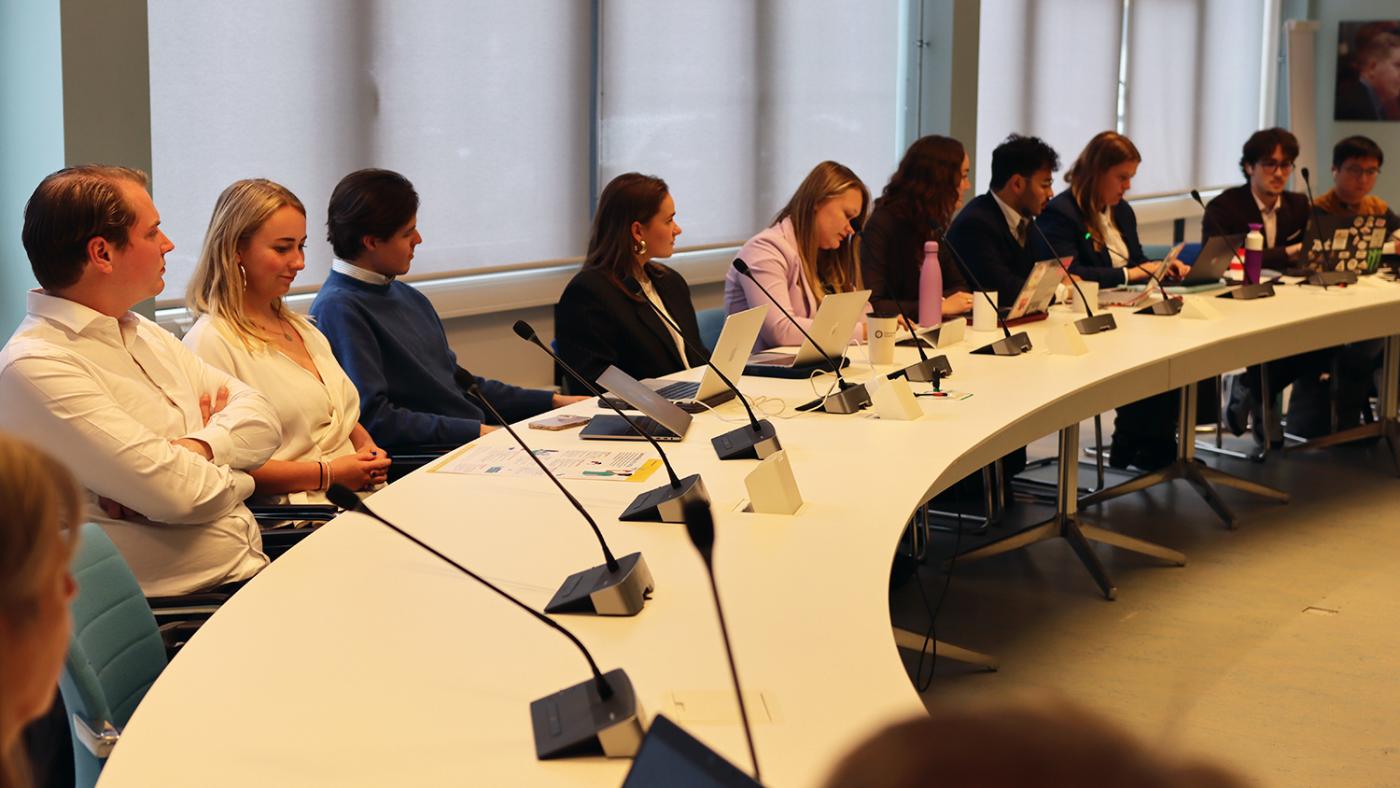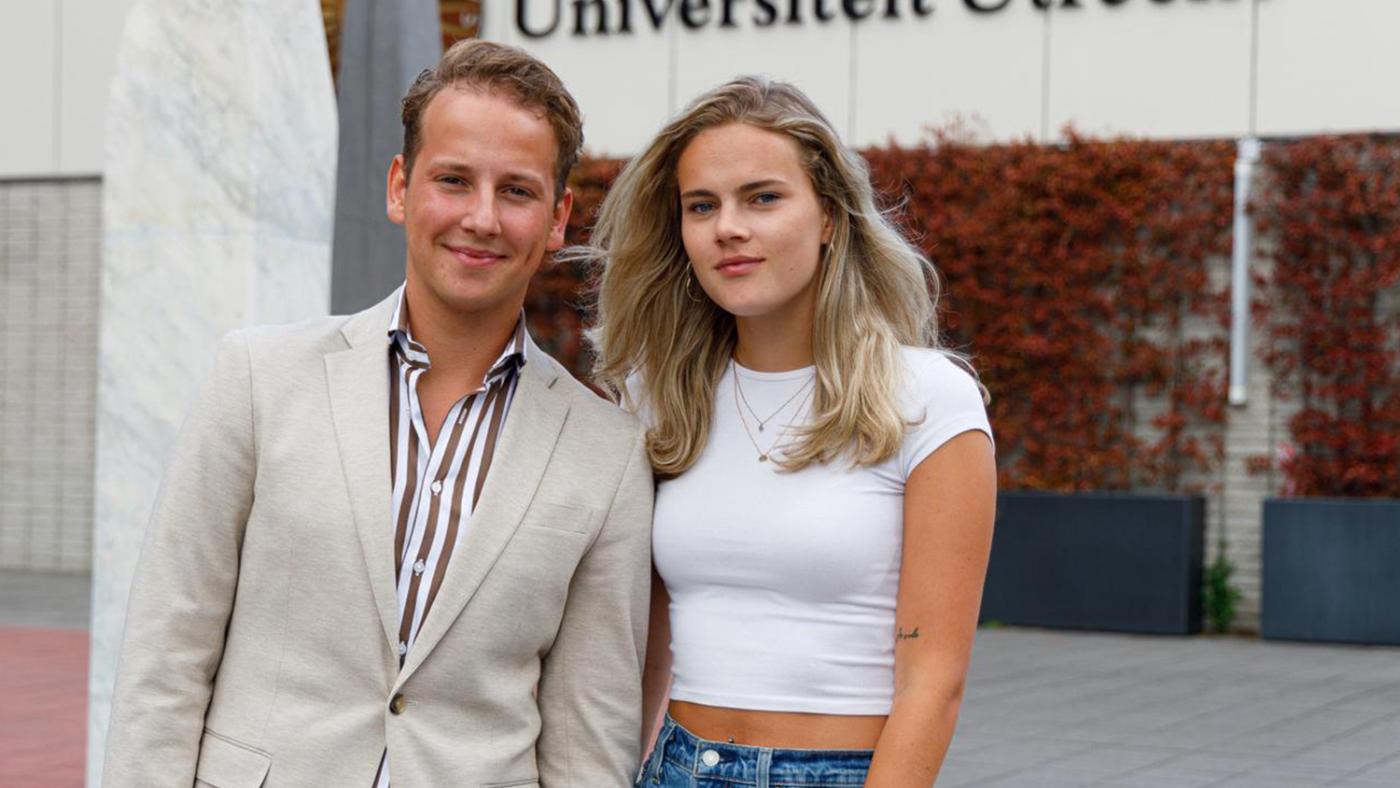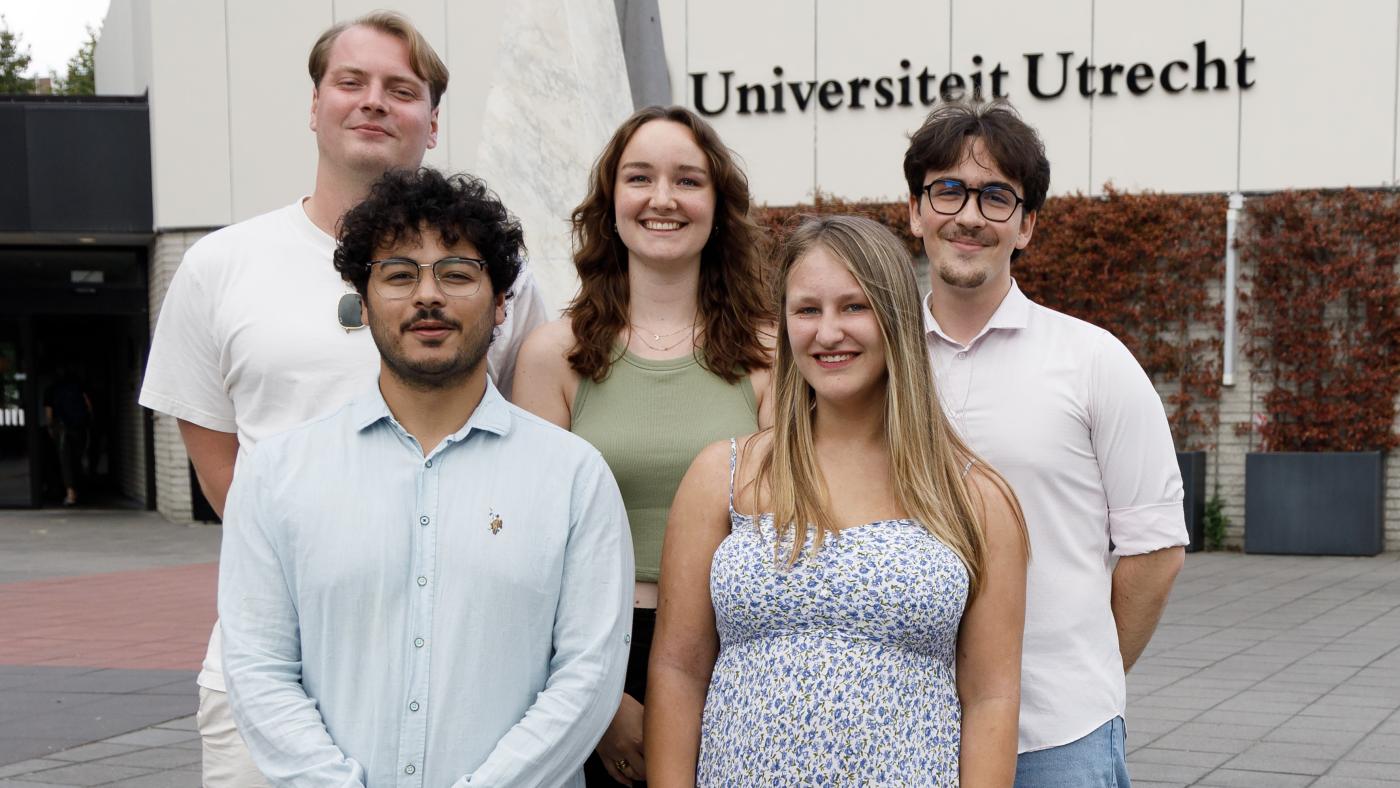More debates expected in the UU Council with advent of new party
What plans do student parties have in mind for UU?

The first meetings of the University Council of 2024-2025 have already taken place and one thing is clear: the student members are not all on the same page. DUB asked them several questions to get an overview of where they stand.
For example, should the university sever its ties with Israeli universities? UU is working on an ethical framework to assess future partnerships. This document should establish what kinds of institutions UU wants to collaborate with and which ones do not reflect its values. The initiative to work on this document followed students' criticism of UU's collaborations with the fossil fuel industry.
The ethical framework will not only cover environmental issues. Possible violations of human rights will be considered too. This may concern collaborations with Israeli institutions. Last summer, UU announced that its partnerships with Israeli institutions would not be halted as there was no risk of human rights deteriorating due to the research projects in question. However, to make a sound judgment about certain projects, the university needs to request more information.
Sammie Verhoeven, from PvdUS: “We appreciate that UU is investigating its collaborations with Israeli universities because it is important to listen to the protesters and take a careful look at the impact of these collaborations. We believe that UU should be consistent in its reaction to all conflicts, and evaluate its partnerships accordingly. For now, we are waiting for the results of the university's investigation of its projects with Israeli universities. UU must be able to substantiate its decision to maintain or end collaborations. This would allow it to remain neutral as an institution. We believe that academic freedom is key, but there are limits to it. If collaborations contribute to warfare and discrimination, they must be broken off immediately. We want the Executive Board to quickly make the report of its evaluation of collaborations with Israel public.”
Sven Hospers, from VSP: “The UU community must continue to discuss the collaborations with Israeli institutions and the conflict itself. After all, it is the university's duty to foster an open debate and safeguard academic freedom. However, we do not believe the university should prohibit any collaborations. UU should not make decisions about this because it can exert influence through collaborations. An ethical policy framework would provide insight into what research entails and what it contributes to. This is relevant, but the framework should not be used to forbid collaborations. It is up to politics to determine which collaborations are not allowed, as was the case with Russian collaborations. It is up to researchers themselves to decide whether to collaborate with an organisation or company.”

The University Council in 2024-2025. Photo: UU
The University Council consists of twelve employees (the staff section) and twelve students (the student section). Every year, students elect new representatives. After the last elections, which happened in May, Lijst Vuur and PvdUS both obtained five seats. Lijst Vuur was born from study associations and PvdUS has its roots in student associations. Newcomer Vrijmoedige Studentenpartij (VSP) is debuting in the council this year with two seats. This nationalist, conservative party aims to make the voices of right-wing students heard.
Lijst Vuur's representation in the council consists of party leader Koko Byalkov and the members Lieke Fokker, Leonie Gerth, Sven Elbers and Saban Caliskan. This is Caliskan's second year in the council. He was re-elected with preferential votes because of his commitment to the Gaza conflict. Representing PvdUS, we have the party leader Sammie Verhoeven and Kai van Willigen, who chairs the student section. Orlando Weering, Anne Minjon and Pien van der Meij are also from PvdUS. The two VSP members are Sven Hospers, the party leader, and Manon Vianen.
How should the university become even more sustainable in the next few years? UU aims to be CO2-neutral (link in Dutch, Ed.) and "zero-waste" by 2030. To achieve this goal, it stopped using disposable paper cups in its coffee machines in 2023. Since then, UU students must bring their own mugs. The university also wants to increase biodiversity on campus. The University Council (before VSP joined) recently submitted a memo (only available to those with a Solis ID, Ed.) regarding climate-friendly long-distance travel.
Orlando Weering, from PvdUS: “We endorse UU's goal to be carbon neutral by 2030. Right now, the university is not doing enough to achieve this goal and we would like to accelerate the energy transition. It is tempting to start doing even less about sustainability because of the budget cuts, but sustainability is too important to postpone. The university has an exemplary role in this matter and this is also an opportunity for UU to be creative and innovative in terms of sustainability. Not to mention it can save money by becoming more sustainable. Abolishing paper cups is an example of this: there is less waste, it saves costs and helps the climate. We are not in favour of making canteens 100-percent plant-based as the vegan lunches offered at UU could use some improvement.”
Manon Vianen, from VSP: “We believe that UU should focus on its primary tasks, which are education and research. It is not its task to become more sustainable. Major cutbacks are coming and the priority should be providing and performing high-quality academic education and research. We do not endorse UU's goal of being carbon neutral by 2030 and we are the only party not to support the University Council's document on climate-friendly long-distance travel. It is up to employees to choose how to travel. If employees want to fly, they should be able to do so. We also want the canteens to keep offering several meat options: we are against plant-based canteens. They are very expensive. There should be vegetarian and vegan options, but students should be able to choose what to eat.”

Sven Hospers and Manon Vianen, from VSP. Photo: courtesy of the students.
Sven Elbers, from Vuur: “We support UU’s intention to be carbon neutral by 2030. The university will have less money these next few years and this may also affect its sustainability ambitions. But, even with budget cuts, UU must continue its efforts to become more sustainable. We must take a close look at the costs of sustainability measures and where the most CO2 can be saved. We must also consider other things, such as the flights UU employees take. Employees and students are convinced that things have to change. Vuur believes that switching to plant-based canteens would be an opportunity to become more sustainable, but we also see the disadvantages of a fully plant-based offer. For me, the most important thing is that the food in the canteens remains affordable because students are not that well off.”
How international should the university be? The Dutch government wants to reduce the influx of foreign students and the anglicisation of higher education. Earlier this year, UU announced its intention to work on this, investigating whether four English-taught Bachelor's programmes could also have a Dutch-taught track. UU is officially bilingual and, despite the bottlenecks, wants to remain an international university.
Pien van der Meij, from PvdUS: "It is important for education and research that the international character of the university is maintained. We do not support the current government's policy to limit internationalisation, but we are also not in favour of getting more international students. After, we are dealing with a significant housing shortage and students should have a place to live to be able to study well. We believe that UU can demand international students to start their studies well-prepared, and that includes already having a place to live before they come. If they don't, the university should turn them down. We are not in favour of an enrolment cap for English-taught Bachelor's programmes. The influx of international students is stagnating and, so we do not consider it necessary to adjust the policy accordingly.”

Lieke Fokker, from Vuur: “Vuur has always held internationalisation and English-taught education in high regard. We want to convey that everyone is welcome at UU. The quality of education must be our guiding principle. It makes sense that the language of instruction should be adjusted if the working field is Dutch. However, I do think it's a shame that English-taught programmes sometimes have little chance of succeeding. We are not in favour of fewer international students. I believe that university education is not only intended for Dutch students but also for people from abroad. We are not blind to the difficulties that internationalisation brings along and we want to do something about that, but we do not see it as a reason to restrict internationalisation. Dutch and international students sometimes find it difficult to mingle, which is due to the language barrier, among other factors. Better guidance and more Dutch courses for international students could help.”
The University Council consists of three committees: Finance, Housing ICT and Sustainability (FHID), which UU Vice-President Margot van der Starre is part of; Education, Research & Student Affairs committee (OOS), with Rector Henk Kummeling; and Strategy, Personnel and Organisation (SPO) with UU President Anton Pijpers. Each committee deals with several subjects. There are four student members and four staff members on each committee.